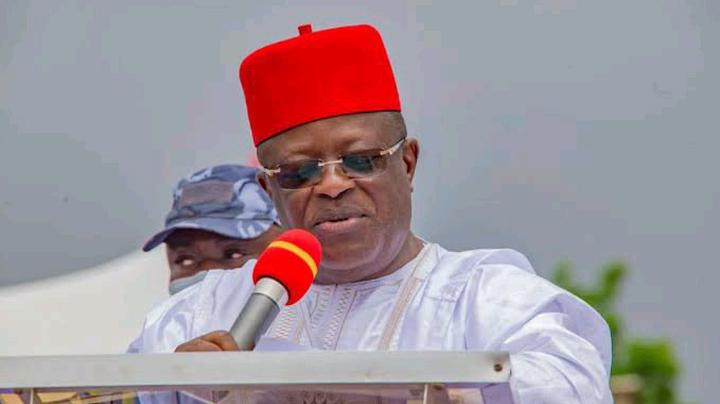In a recent video shared on the official X account of News Central TV, Nigeria’s Minister of Works, David Umahi, responded to allegations of sexual harassment made against him, urging women to be cautious about making false accusations. The minister’s remarks come amid an ongoing claim that he owed a woman N200 million from a 2014 transaction, an accusation he firmly rejected. Umahi questioned the credibility of the allegation, dismissing it as baseless and highlighting what he saw as inconsistencies in the woman’s claims.
Umahi refuted the claim that he owed the woman N200 million, pointing out that his entire gubernatorial campaign in 2014 had cost him less than N100 million, making the accusation seem illogical. He further demanded evidence of the transaction, asking for a contract paper or an account statement to verify the financial claims. His response indicated that he believed the woman’s allegations were unfounded and lacked substantial proof.
The minister went on to suggest that the woman might be influenced by external parties, noting that similar accusations had been made against other political figures in the past. Umahi mentioned that he had initially disregarded the allegations, suspecting that they might be driven by personal or political motives. He even suggested that the woman had a history of making similar claims against multiple governors, which, in his view, raised doubts about the truthfulness of her accusations.
According to him, “When I saw what she did to three other governors, I thought it was a mental case, so I didn’t bother to listen.”
Umahi also linked the ongoing controversy to previous protests against him in the United States and the United Kingdom, suggesting that there were individuals behind the accusations who were trying to fuel the negative attention. He made it clear that he had instructed his legal team to pursue the matter in court, intending to seek damages for what he described as a harmful and false claim. This legal action, he argued, would help protect his reputation and hold the accuser accountable.
In a highly controversial remark, Umahi further criticized the woman by challenging her to publish her picture, questioning whether she was attractive enough to be the subject of such allegations. He framed this comment as part of his broader message against what he perceived as false accusations, which he argued could have serious consequences for women. Umahi warned that such claims could discourage men in positions of power from interacting with or assisting women, out of fear of being falsely accused.
Umahi emphasized that the case would serve as a lesson for men in leadership positions, encouraging them to be cautious in their interactions with women. He expressed a strong desire to safeguard the integrity of men like himself, who he described as decent, while calling on women to rise against the misuse of sexual harassment claims. In doing so, he aimed to underline the importance of truthfulness and accountability in addressing such serious matters.
You Can Get More News Using The Button Below.

